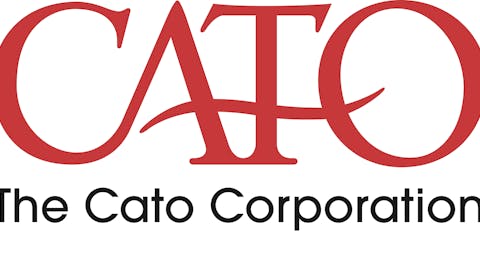Stage Stores Inc (NYSE:SSI) is a Houston-based retailer that operates both department and off-price stores primarily in small and mid-sized towns and communities. Its department stores, which operate under the Bealls, Goody’s, Palais Royal, Peebles and Stage brands, offer moderately priced, nationally recognized brand name and private label apparel, accessories, cosmetics and footwear for the entire family. Its off-price stores, which are called Steele’s, offer brand name family apparel, accessories, footwear and home merchandise at significant savings to department store prices. Stage Stores operates more than 864 stores in 40 states.

Business Quality
Stage Stores is the country’s leading small town retailer, with 65% of stores and 59% of sales in towns with a population below 50,000, which are under-served markets with limited competition. It differentiates itself from the competition in small and mid-sized communities by offering consumers access to both basic and fashionable brand name merchandise not typically carried by other retailers in the same area.
Stage Stores adopts a brand-focused merchandise marketing strategy to support each store’s position as the local destination for basic and fashionable, moderately priced, brand name merchandise. Apparel and cosmetics accounted for 97% of Stage Stores’ sales. It carries nationally recognized brands such as Levi Strauss, Nike, Calvin Klein, Chaps, Izod, Dockers, Carters, Jockey, Estee Lauder, Clinique, Nautica, Skechers and New Balance, not to mention Estee Lauder and Clinique treatment products in more than 200 of its stores.
Stage Stores’ small town retail focus has enabled it to develop a unique real estate strategy, with store formats that are smaller than that of typical department stores with an average store size of approximately 18,500 selling square feet. Approximately 87%, 10% and 3% of its stores are located in strip shopping centers, local & regional shopping malls, and free standing & downtown buildings, respectively. Unlike other retailers, Stage Stores attempts to locate its stores in the vicinity of grocery stores, drug stores, and major discount stores such as Wal-Mart Stores, Inc. (NYSE:WMT) that it believes will help attract additional foot traffic to the area. Stage Stores does not compete directly for branded apparel sales with national discounters such as Wal-Mart due to minimal merchandise overlap. Also, its average rent for its 864 stores is $4.15 per square foot, among the lowest in the industry.
Valuation and Financial Analysis
Stage Stores currently trades at a trailing twelve months P/E of 21.4 and a trailing twelve months EV/EBITDA of 6.6. Stage Stores achieved a trailing twelve months ROE of 8.6% and a five year average ROE of 3.5%. It delivered positive earnings and free cash flow in nine out of the last ten years and grew its revenue and EPS by a ten year CAGR of gross profit and EPS (adjusted for acquisition and merger related costs) by 3.7% and 6.6%, respectively. Comparable store sales for Stage Stores for the month of January and the fourth quarter ended January 2013 were at their highest levels in over 10 years. Stage Stores has a strong balance with a low gross debt-to-equity ratio of 8% and a net cash financial position. It has paid out dividends to shareholders since 2005 and has a track record of increasing dividend payouts every year. Dividends are paid quarterly and it currently sports a trailing twelve month dividend yield of 1.5%.
Competitor Analysis
Ross Stores, Inc. (NASDAQ:ROST) and The TJX Companies, Inc. (NYSE:TJX) are Stage Stores’ closest competitors in the off-price retail space. Ross Stores is currently focused on expanding within the United States and has a strong presence in the South and the West, while The TJX Companies is the largest North American off-price retailer with roughly a quarter of sales derived from Europe and Canada. All three stocks trade at trailing twelve months P/Es of between 18 and 21, and have strong balance sheets with net cash financial positions. However, Stage Stores is significantly cheaper based on enterprise value multiples, trading at six times EV/EBITDA compared with Ross Stores and The TJX Companies, which trade at nine times EV/EBITDA. This is perfectly understandable, given that Stage Store delivered trailing twelve month and five year average ROEs below 10%, while Ross Stores and The TJX Companies are churning out ROEs above 40%.
Investment Risks
Most of Stage Stores’ stores are located in the South Central, Southeastern, and Mid Atlantic states. Any downturn in the local economy of these states will have an adverse effect on its revenue and bottom line.
Approximately 7% of Stage Stores’ fiscal 2012 sales were derived from stores located in cities that either border Mexico or are in close proximity to Mexico. Any devaluation of the Mexican peso could reduce the purchasing power of those customers who are citizens of Mexico.
Like other retailers, Stage Stores’ business is seasonal in nature, with the fourth quarter of the fiscal year from November through January usually accounting for slightly more than 30% of its annual sales.
Conclusion
Stage Stores has a new management team on board, with the Chief Executive Officer, Chief Merchandising Officer, and the Senior Vice President of Marketing appointed in 2012. Moreover, it is still new to the off-price retail space, with only 34 stores under the Steele’s brand name. Stage Stores’ lower EV/EBITDA valuation relative to peers is attractive to patient value investors, who can afford to wait out the uncertainty as it grows.
The article Stage Stores: America’s Leading Small Town Retailer originally appeared on Fool.com and is written by Mark Lin.
Copyright © 1995 – 2013 The Motley Fool, LLC. All rights reserved. The Motley Fool has a disclosure policy.



